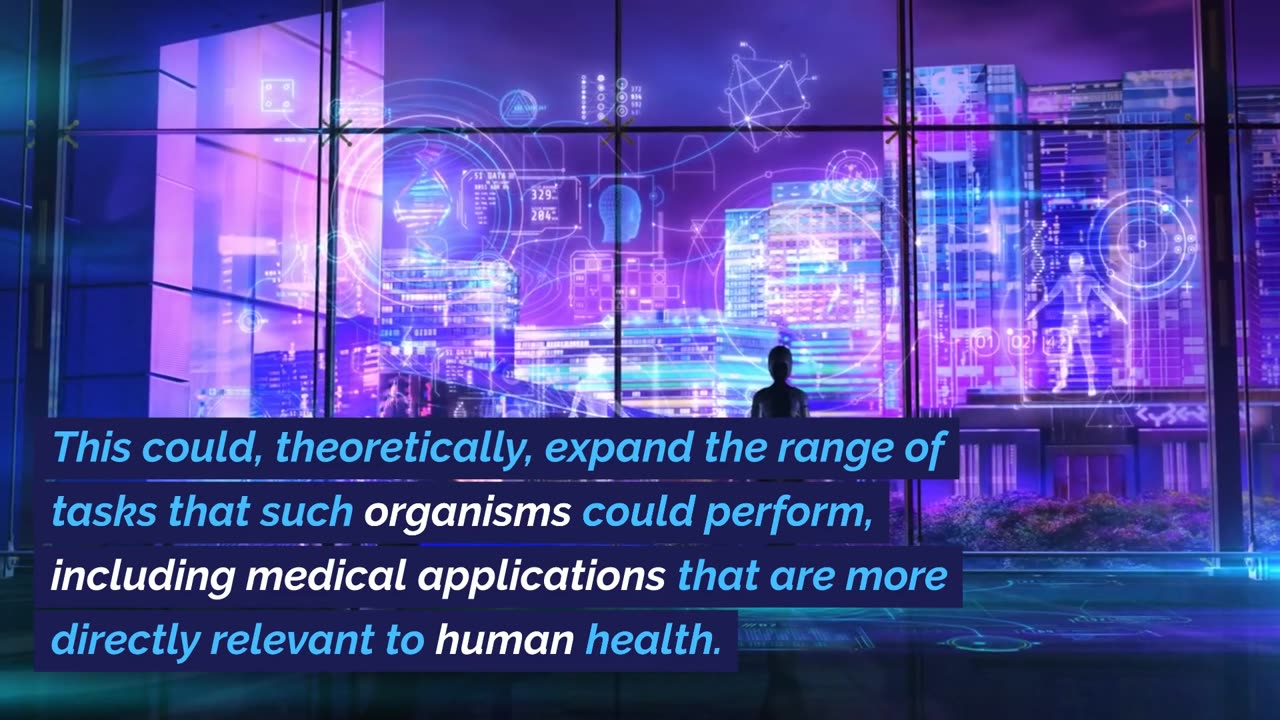Premium Only Content

Using human stem cells in the creation of xenobots
Using human stem cells in the creation of xenobots or similar synthetic organisms would introduce a new layer of complexity and ethical considerations. Here's how: Potential Applications: Human stem cells have the ability to differentiate into various cell types, which could allow for the creation of more complex and specialized structures. This could, theoretically, expand the range of tasks that such organisms could perform, including medical applications that are more directly relevant to human health. Ethical Concerns: The use of human stem cells in creating synthetic organisms would undoubtedly raise significant ethical issues. Concerns might include questions about consent (from whom the cells were taken and for what purpose), the moral status of the synthetic organisms, potential human-animal hybrid concerns, and the risks of unforeseen consequences. Regulatory Challenges: Human stem cell research is subject to stringent regulations in many jurisdictions. The creation of synthetic organisms using human cells would likely face substantial legal and regulatory scrutiny, and the development of appropriate guidelines would be a complex process. Scientific Challenges: Beyond the ethical and regulatory considerations, using human stem cells in this context would also pose significant scientific and technical challenges. Human cells function within highly complex and specialized environments, and replicating or controlling those environments outside the human body would be an intricate task. Potential Misuse: Like many powerful technologies, the creation of synthetic organisms using human stem cells could be subject to misuse. This might include the creation of organisms for harmful purposes or the use of the technology in ways that violate societal norms and values. Public Perception: There could be significant public resistance to the use of human stem cells in this way, rooted in both rational concerns and emotional reactions. This resistance could affect the funding, regulation, and social acceptance of the research. In summary, while the use of human stem cells in the creation of xenobots or similar synthetic organisms could open up new possibilities, it would also introduce significant ethical, legal, scientific, and societal challenges. Such an approach would likely require careful consideration, transparent public dialogue, and the development of clear ethical guidelines and regulatory frameworks. Global Robotics Corporation globalroboticscorp.com Please like, comment, share and subscribe
-
 LIVE
LIVE
LFA TV
10 hours agoLIVE & BREAKING NEWS! | THURSDAY 11/6/25
4,312 watching -
 52:16
52:16
American Thought Leaders
17 hours agoIs There a Link Between Mass Shootings and SSRIs?
18.3K25 -
 17:12
17:12
World2Briggs
17 hours agoTop 10 Towns You Can Retire or Live on $1900 a month in the Midwest #1
1.88K1 -
 17:25
17:25
BlackDiamondGunsandGear
1 day agoCustom Building the Cheapest MP5
4.24K1 -
 LIVE
LIVE
BEK TV
23 hours agoTrent Loos in the Morning - 11/06/2025
176 watching -
 8:10
8:10
The Shannon Joy Show
17 hours agoShould we even VOTE anymore?
6.33K20 -
 59:34
59:34
Dialogue works
1 day ago $0.02 earnedMohammad Marandi: It’s WAR: Iran’s Supreme Defense Council ACTIVATES –Hezbollah REFUSES to Surrender
39.8K11 -
 10:23
10:23
TheSaltyCracker
17 hours agoMuslims Immediately Threaten New Yorkers After Zohran Win
34.5K445 -
 18:40
18:40
Actual Justice Warrior
17 hours agoMamdani Pledges To DESTROY New York
21.3K58 -
 28:53
28:53
iCkEdMeL
17 hours ago $0.03 earnedBREAKING: 9 DEAD After UPS Plane BURSTS Into Fireball at Louisville Airport
28.5K7